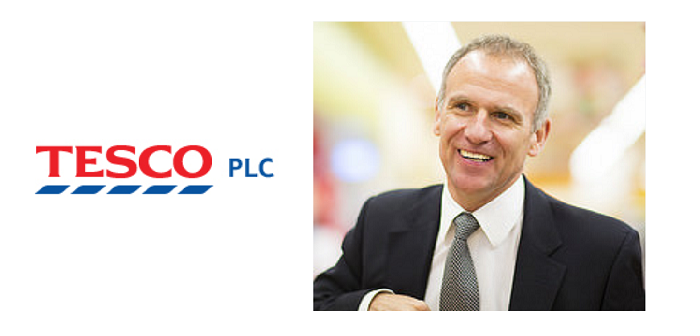Tesco chief executive, Dave Lewis, has told the UK’s business leaders that the challenge of “running through an unprecedented period of food deflation” may be great news for customers but is making it hard for companies to generate the necessary funds to invest and restore profitability.
Speaking at CBI’s annual conference yesterday, he pointed out that two years ago food inflation was running at 4% but that retailers were now having to cope with minus 2.4%, a huge turnaround which he said has contributed to the profitability of UK supermarkets shrinking from 5% to 2% in the last five years.
Although he later spoke of seeking new levels of collaboration with suppliers, his message carried a clear warning about the challenge of the future. He also described the way the retail sector is being treated on business rates as a “significant new cost pressure” adding that this was a “potentially lethal cocktail” which needs to be addressed.
“Over the last five years property values have fallen, profits are down but business rates are up,” said Mr Lewis (pictured above), pointing out that business rates have hit £8bn for retail.
“That’s significantly more than any other sector and is an enormous pressure. Shops have closed. Businesses lost. Jobs sacrificed. Our own business rates bill has increased by well over 35% in the last 5 years. It’s the biggest tax we pay and it is now three times OECD average.
“For every £1 we pay in corporation tax large UK retailers pay £2.31 in rates. It’s unsustainable and needs urgent reform.”
In addition, ensuring there was no risk of his warning being overlooked, he added that the retail industry today employs three million people, including one million directly in supermarkets and a further 900,000 in the sector’s supply chains.
“And every year as an industry we pay somewhere in the region of £28 billion in tax,” he said, adding that he believed a key answer for the retail industry would be to secure new levels of collaboration in the years ahead, especially with suppliers and between business and Government.
“All of this needs to be done within a re-balanced, growth-minded tax framework which is mindful of unintended consequences, reflecting the very real pressures on businesses right now as they navigate a period of unprecedented change.”




